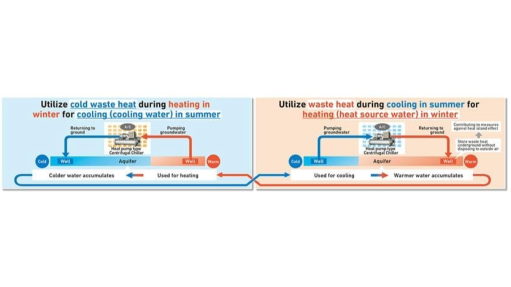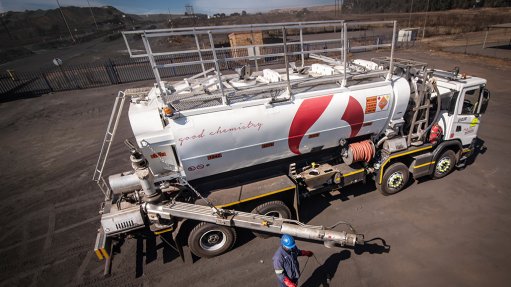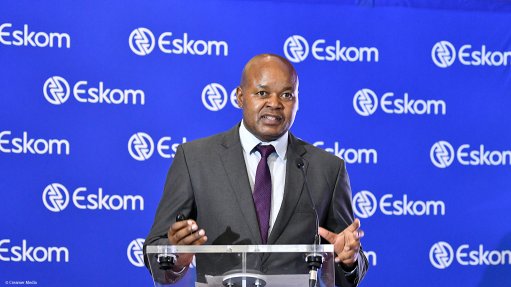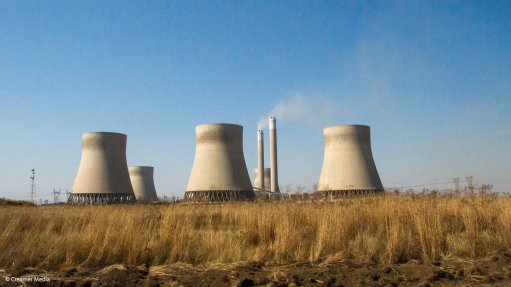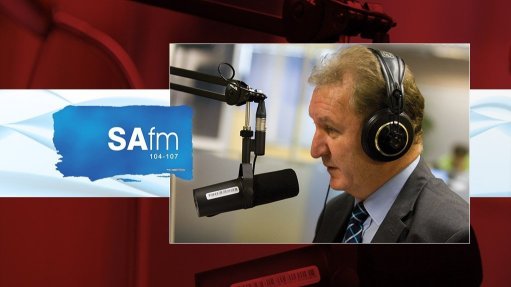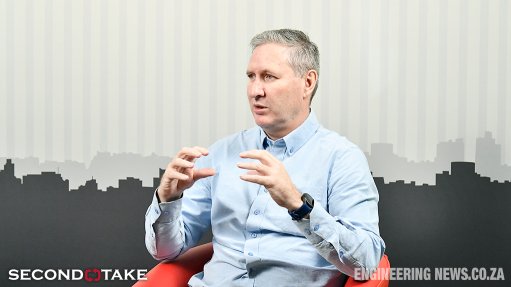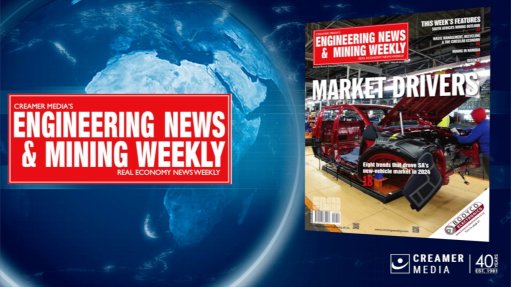Deep-sea mining just lost its biggest corporate backer
A growing number of countries are calling to delay plans to strip-mine the seabed for metals to make electric car batteries as US defense giant Lockheed Martin, the biggest corporate player in deep sea mining, exits the nascent industry.
Last week’s sale of Lockheed’s UK Seabed Resources subsidiary to Norwegian startup Loke Marine Minerals was announced just as the United Nations-affiliated organization tasked with regulating deep sea mining kicked off a conference in Jamaica.
The International Seabed Authority (ISA) is meeting to hit a July deadline for approving regulations that would allow unique deep ocean ecosystems to be mined as soon as 2024. Tensions at the conference are rising as scientists, lawyers and activists charge the Authority’s administrative arm, known as the Secretariat, with pushing a pro-mining agenda. Last week, some of the ISA’s 167 member nations accused ISA Secretary-General Michael Lodge of overstepping his role as a neutral administrator.
As the conference got underway, the UK’s delegate also revealed Lockheed’s effective withdrawal from the industry, with the sale of UK Seabed Resources for an undisclosed price. “Following a detailed analysis of the business it was clear that there was a better owner for our UK Seabed Resources (UKSR) business,” a Lockheed Martin spokesperson said in an email.
Lockheed’s interest in deep sea mining dates to the 1970s, and its British subsidiary has held ISA licenses since 2013 to explore the seabed for cobalt, nickel and other metals. (The company retains US licenses, issued decades ago, to explore for minerals in the Pacific Ocean.) Lockheed’s sudden departure from deep sea mining — just as the industry reaches the possible cusp of commercialization — leaves no Western mining contractor with pockets deep enough to finance the billions of dollars needed to launch a seabed mining operation.
The ISA conference is taking place amid rising demand for cobalt, nickel and other metals used to make batteries for electric cars, and comes less than two weeks after 193 nations reached agreement on a landmark treaty to protect marine biodiversity in international waters. Pressure to delay or ban implementation of seabed mining centers on the lack of scientific knowledge about deep sea ecosystems targeted for exploitation.
On Thursday, UK delegate Gavin Watson told the ISA Council, the organization’s 36-nation policymaking body, that his country would not support “the issuing of any exploitation licenses for deep sea mining projects unless and until there is sufficient scientific evidence about the potential impact on deep sea ecosystems systems.”
Amid the growing strain, multiple accredited ISA observers said Secretariat staff on Monday threatened them with expulsion for taking photos and video of the conference proceedings and ordered them to delete files from their phones. Accredited observers also include the US, the Holy See and other nations that are not ISA member states.
“There was an ISA staff member positioned above the observers all day to essentially police our behavior, which was certainly very unnerving,” said Diva Amon, a deep sea scientist representing the Deep Ocean Stewardship Initiative at the meeting. Amon, a longtime participant at the ISA, was the 2018 recipient of a research award from the secretary-general.
Arlo Hemphill, Greenpeace USA’s lead for deep sea mining and ocean sanctuaries, said he was approached by a Secretariat staffer as he charged his phone. “This woman came over to me and said, ‘I was told you were filming.’ I said I wasn't and then she told me if I was caught filming, she would rip my badge off and remove my credentials,” said Hemphill, who has attended six ISA meetings. “It felt very authoritarian.”
Duncan Currie, an international lawyer and representative of the Deep Sea Conservation Coalition, an accredited ISA observer, said he witnessed Secretariat staff ordering observers to put down their phones. A video reviewed by Bloomberg Green shows Secretariat employees standing behind a group of observers and then approaching them when they appeared to be taking photos.
ISA spokesperson Stefanie Neno said in a statement that only journalists are permitted to shoot photographs and video at ISA proceedings. The policy she cited, however, refers only to accredited media, not observers.
On Sunday, The New York Times published a March 16 letter that a German government minister sent to Lodge, objecting to what she characterized as his improper interference in delegates’ discussions of alternatives to approving mining licenses should regulations not be in place by July. “In the past, you have actively taken a stand against positions and decision-making proposals from individual delegations,” wrote Franziska Brantner, Germany’s minister for economic affairs and climate action. All ISA member states “must be able to trust that the Secretariat will respect its duty of neutrality. “
Lodge replied the next day. “This is untrue and I reject such a baseless allegation,” he wrote in a March 17 letter to Brantner posted by the Times.
Neno said the ISA “is fully committed to protecting the marine environment and regulating economic, exploratory and scientific activity in the deep sea,” adding: “The role of the Secretariat is not to pass judgment on the position of member states, but to facilitate negotiations and ensure that discussions are informed by the best available science.”
But the Secretariat has at times appeared less than neutral. The organization created a video and coloring pages for children about deep sea mining so they can “learn about the deep sea, its incredible creatures, its environment and the work of ISA to explore and protect it.” And souvenirs for sale at the ISA meeting in Jamaica include “nodule bracelets,” a reference to polymetallic nodules set to be mined on the seabed. Scientists estimate polymetallic nodules are the habitat for half of the larger species found in the region of the Pacific Ocean targeted for mining.
Costa Rican Ambassador Gina Guillén Grillo on Monday tweeted that, “Member states should drive the International Seabed Authority: decisions must come from them & must not be pushed by those who have only administrative duties. Mining the seabed cannot be rushed because of the economic interests of a few.”
The ISA was established by UN treaty in 1994 to regulate the industrialization of the seabed in international waters and to ensure the protection of the marine environment. Since 2001, the Authority has issued exploration contracts to state-backed enterprises, government agencies and private companies to prospect for minerals over more than 500 000 square miles of the seabed in the Atlantic, Indian and Pacific oceans. As part of that process, each mining contractor must be sponsored by an ISA member nation, which is responsible for ensuring compliance with environmental regulations. But investigations by Bloomberg Green, the Los Angeles Times and The New York Times have revealed the closeness of the Secretariat to the mining companies the Authority regulates, as well as the influence some of those companies exert over small Pacific island nations that sponsor their contracts.
In speeches, Lodge has downplayed the potential environmental impact of seabed mining and decried what he describes as inaccurate media coverage of the ISA. In 2020, he threatened to sue Radio New Zealand for defamation for referring to him as “cheerleader” for the seabed mining industry.
The ISA Council had spent more than six years laboriously deliberating regulations that would allow mining to move forward, with a non-binding 2020 target for completing them. Then in June 2021, Nauru, a Pacific island nation with a population of 8,000, invoked a provision in a UN treaty that requires the ISA to finish regulations within two years.
Nauru is a sponsor of a subsidiary of The Metals Company, a Canadian-registered venture formerly known as DeepGreen that also holds mining contracts sponsored by two other small Pacific island nations. If the ISA does not approve regulations by July, it may be required to provisionally approve The Metals Company’s application for a mining license under whatever environmental protections are in place at the time.
That prospect has prompted France, Germany, France, Spain, Costa Rica, New Zealand, Chile, Panama, Palau, Fiji and the Federated States of Micronesia to call for a moratorium or pause on deep sea mining. Brazil, Belgium, the Netherlands, Portugal, Singapore, Switzerland and other countries have indicated that they would not approve any mining contracts until adequate environmental protections for the seabed are enacted.
“The ocean’s health, people and natural ecosystems are already reeling from pollution, overfishing, acidification and extreme weather events,” said Hinano Murphy of French Polynesia, one of the indigenous representatives from the Pacific who addressed the Council on Monday. “With a ban on deep sea mining, however, we see the chance to stop the needless damage before it starts.
Comments
Press Office
Announcements
What's On
Subscribe to improve your user experience...
Option 1 (equivalent of R125 a month):
Receive a weekly copy of Creamer Media's Engineering News & Mining Weekly magazine
(print copy for those in South Africa and e-magazine for those outside of South Africa)
Receive daily email newsletters
Access to full search results
Access archive of magazine back copies
Access to Projects in Progress
Access to ONE Research Report of your choice in PDF format
Option 2 (equivalent of R375 a month):
All benefits from Option 1
PLUS
Access to Creamer Media's Research Channel Africa for ALL Research Reports, in PDF format, on various industrial and mining sectors
including Electricity; Water; Energy Transition; Hydrogen; Roads, Rail and Ports; Coal; Gold; Platinum; Battery Metals; etc.
Already a subscriber?
Forgotten your password?
Receive weekly copy of Creamer Media's Engineering News & Mining Weekly magazine (print copy for those in South Africa and e-magazine for those outside of South Africa)
➕
Recieve daily email newsletters
➕
Access to full search results
➕
Access archive of magazine back copies
➕
Access to Projects in Progress
➕
Access to ONE Research Report of your choice in PDF format
RESEARCH CHANNEL AFRICA
R4500 (equivalent of R375 a month)
SUBSCRIBEAll benefits from Option 1
➕
Access to Creamer Media's Research Channel Africa for ALL Research Reports on various industrial and mining sectors, in PDF format, including on:
Electricity
➕
Water
➕
Energy Transition
➕
Hydrogen
➕
Roads, Rail and Ports
➕
Coal
➕
Gold
➕
Platinum
➕
Battery Metals
➕
etc.
Receive all benefits from Option 1 or Option 2 delivered to numerous people at your company
➕
Multiple User names and Passwords for simultaneous log-ins
➕
Intranet integration access to all in your organisation







